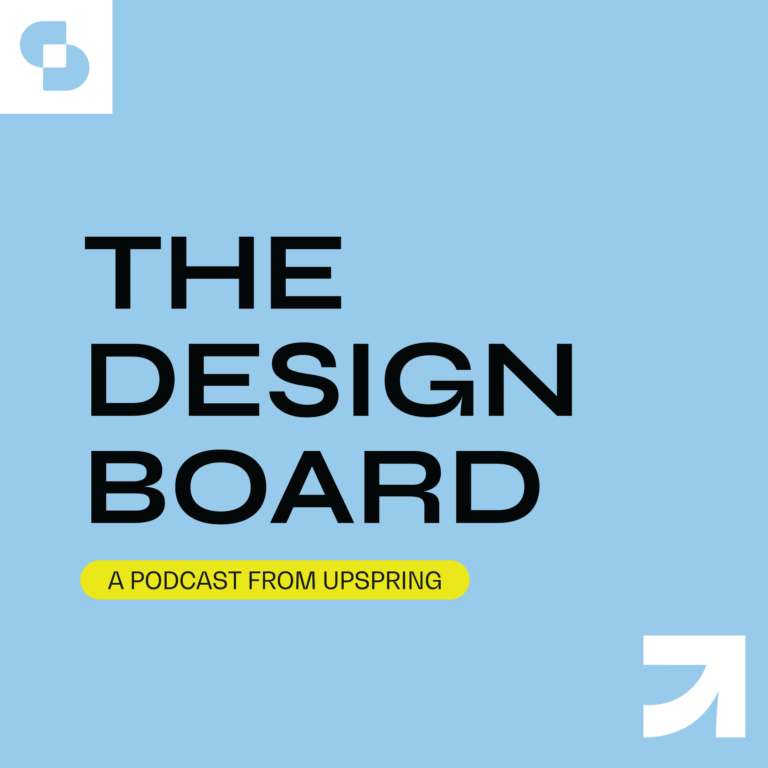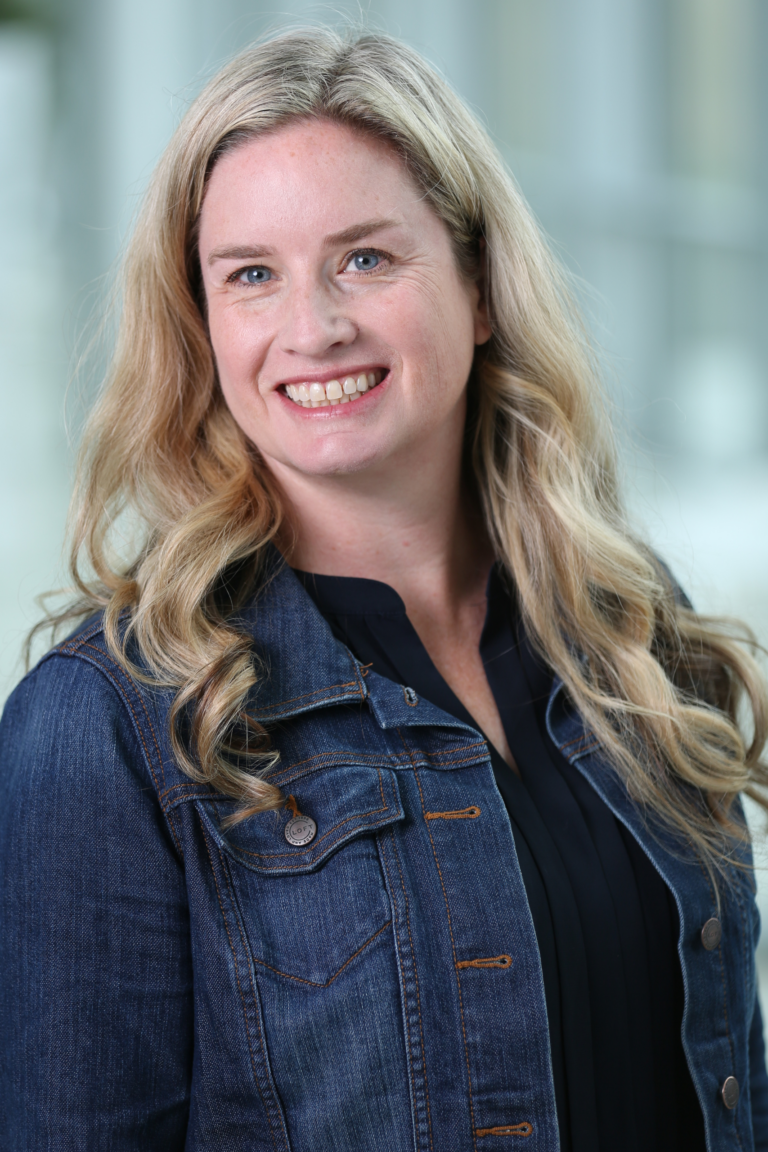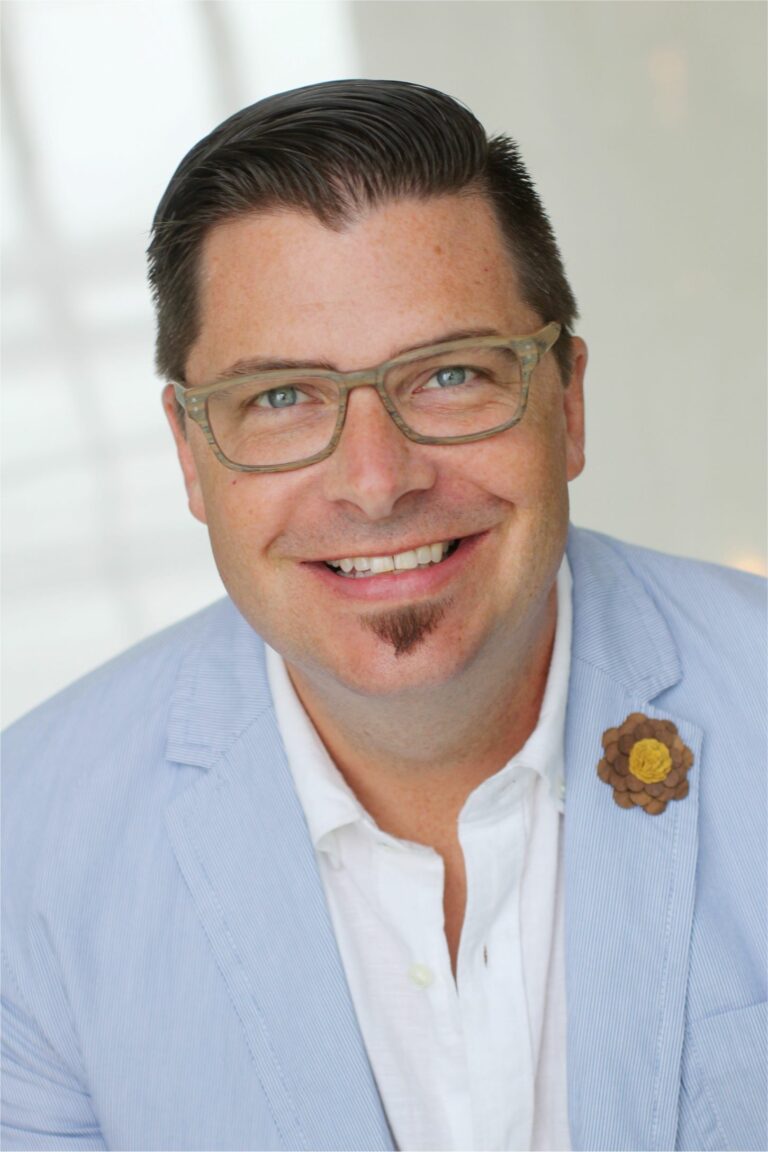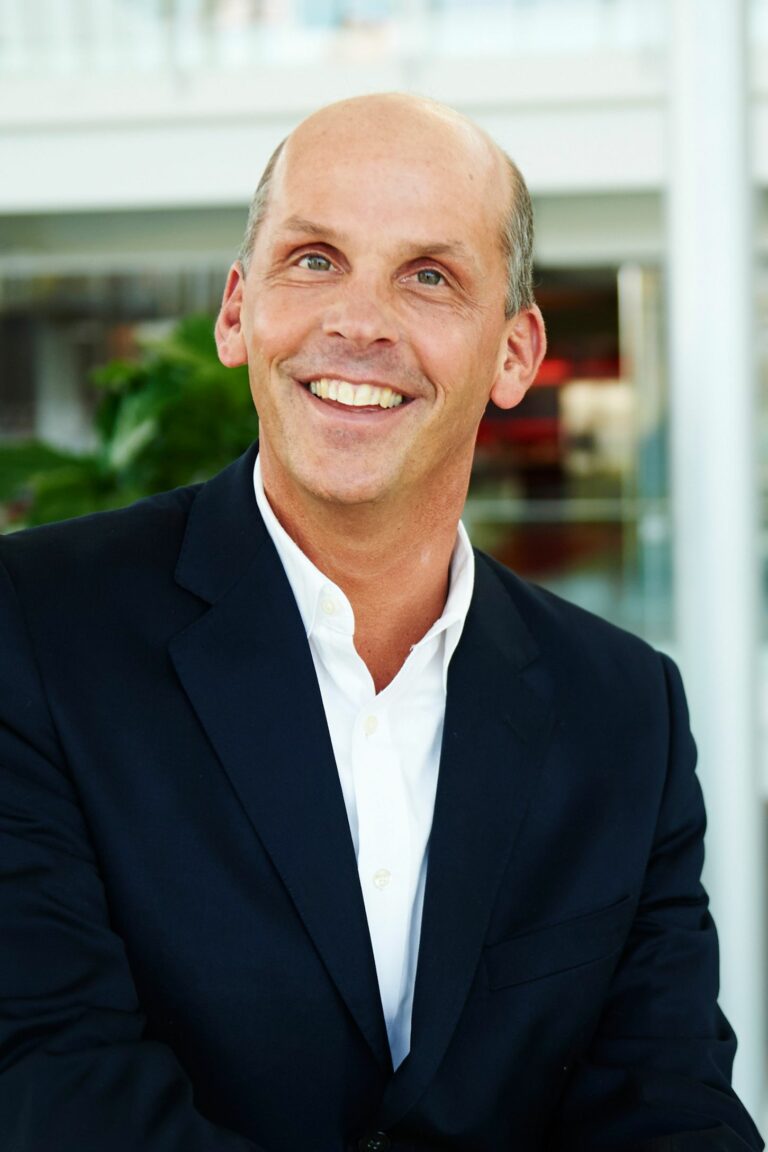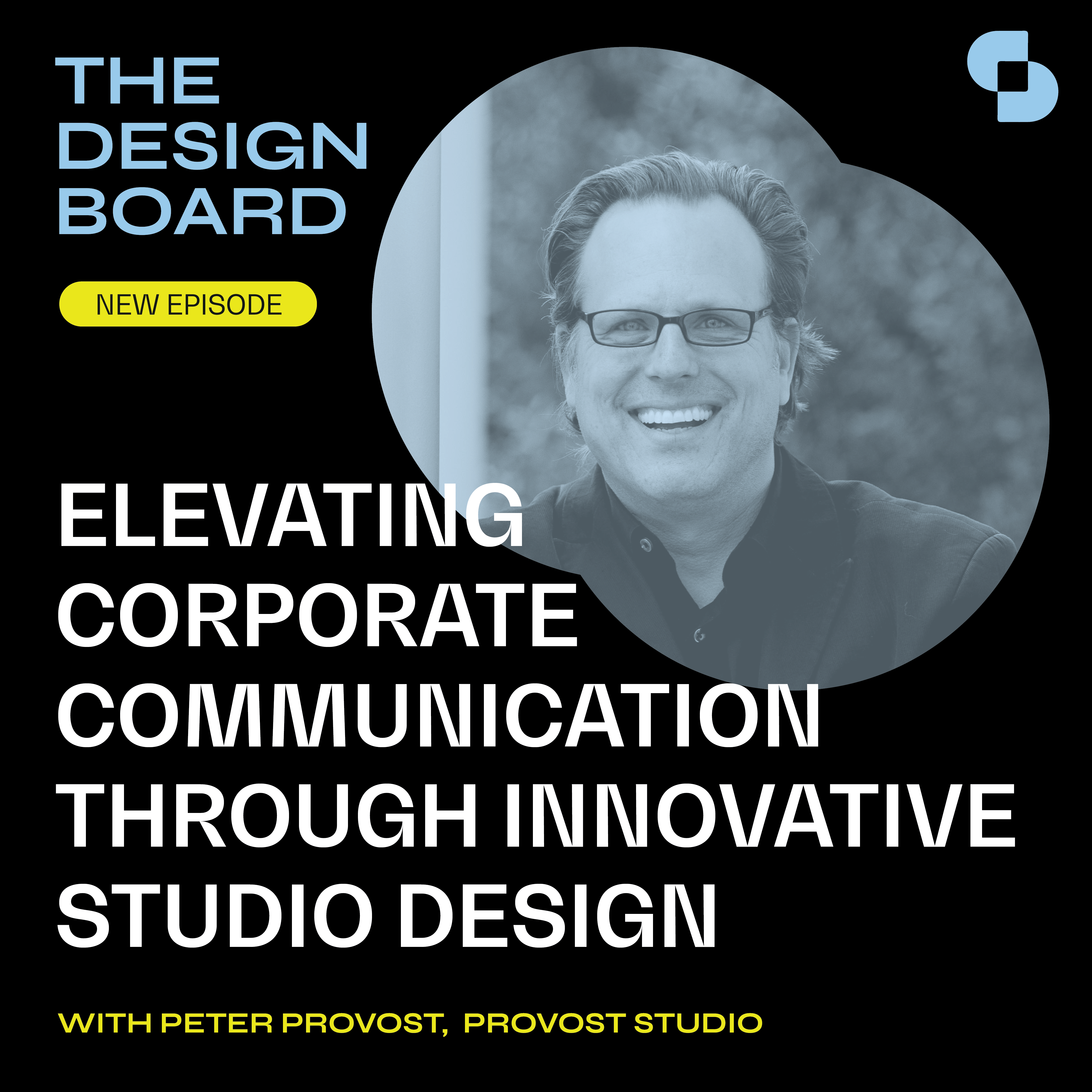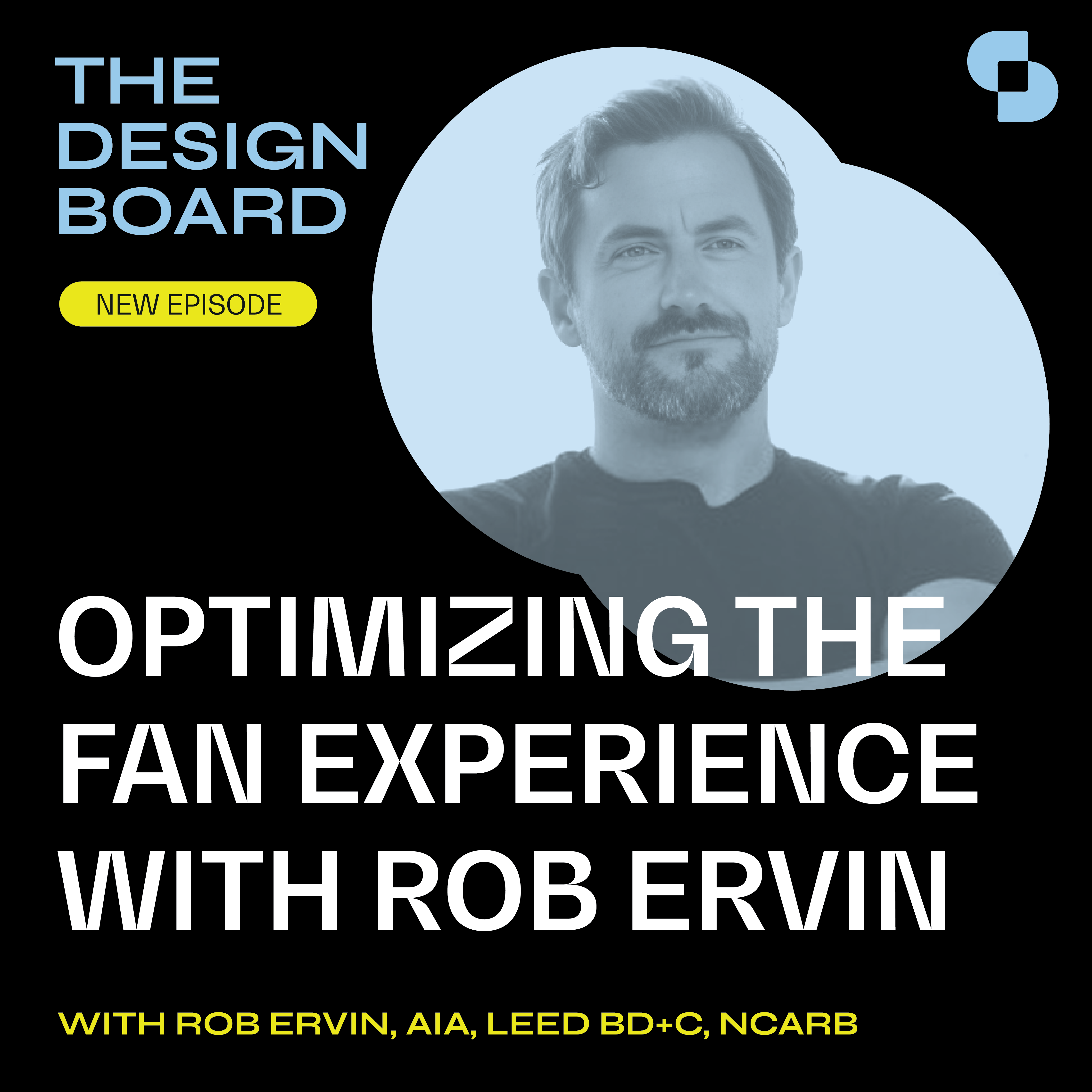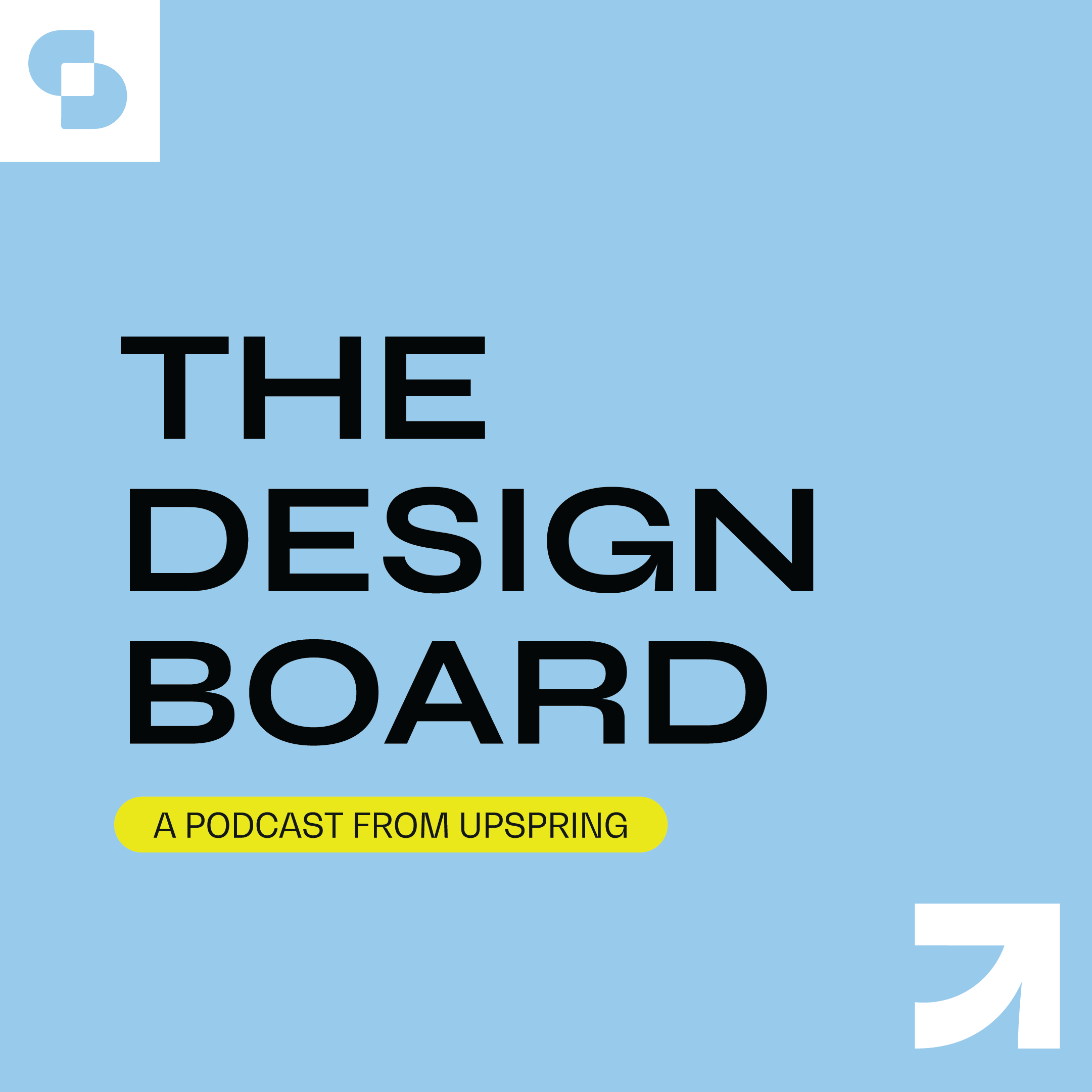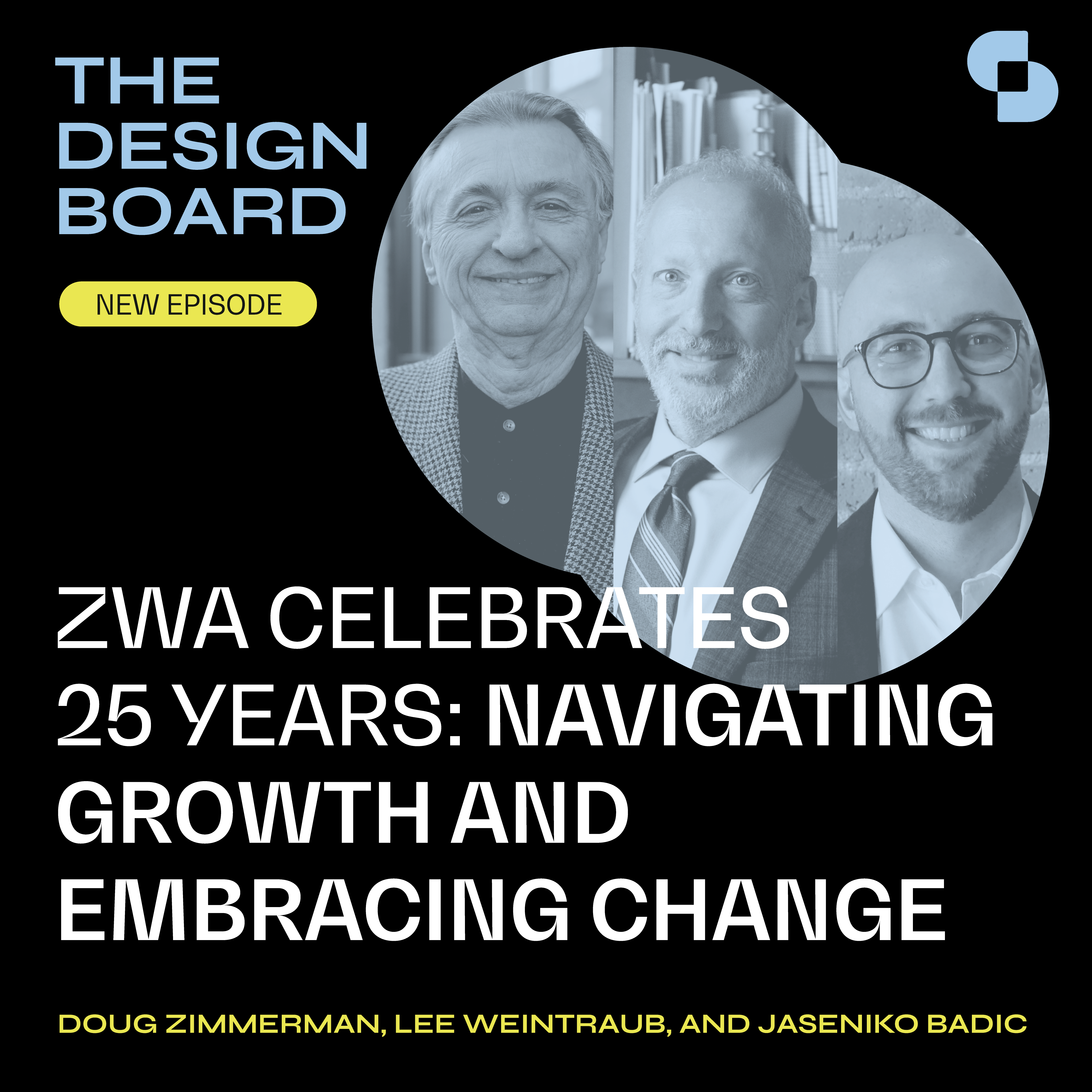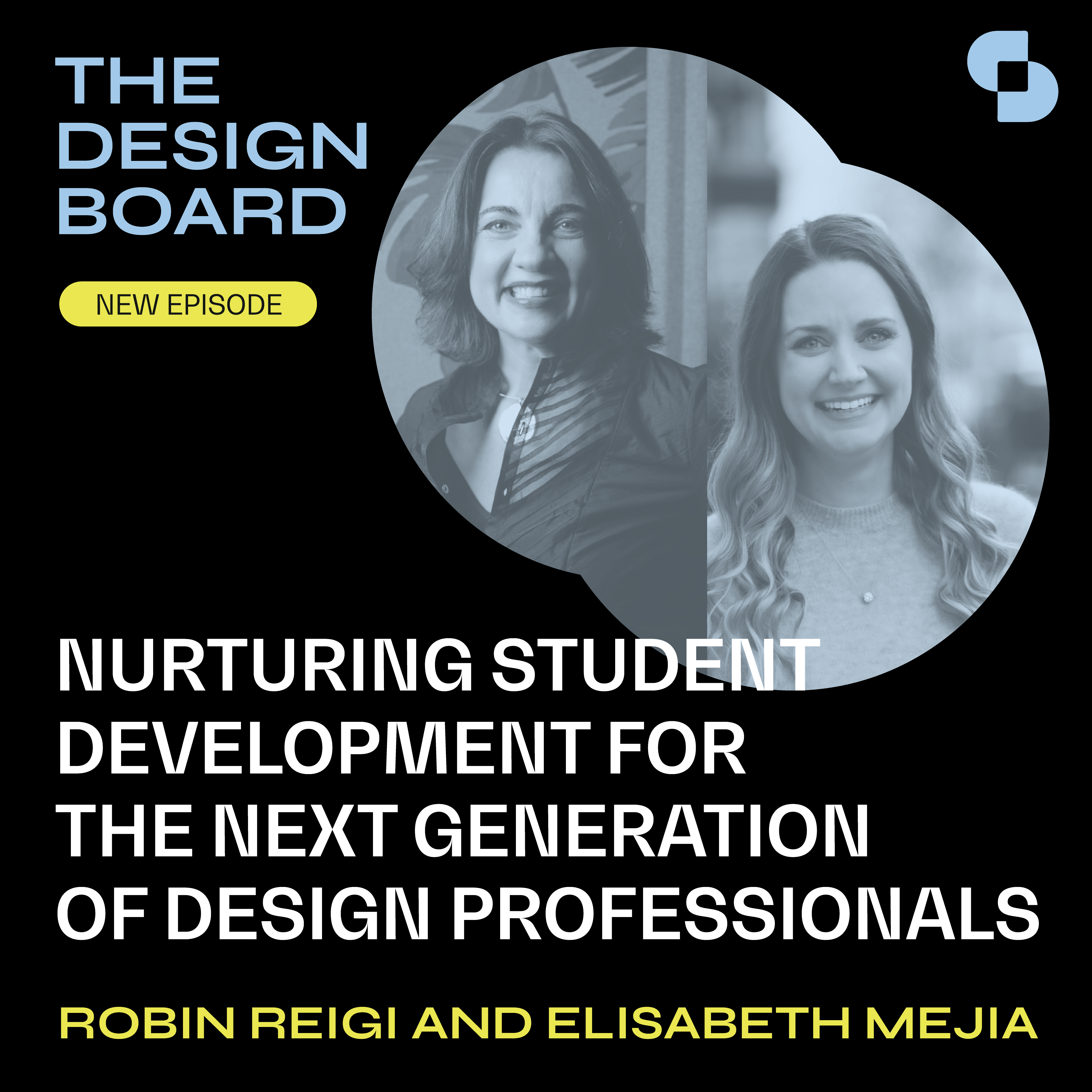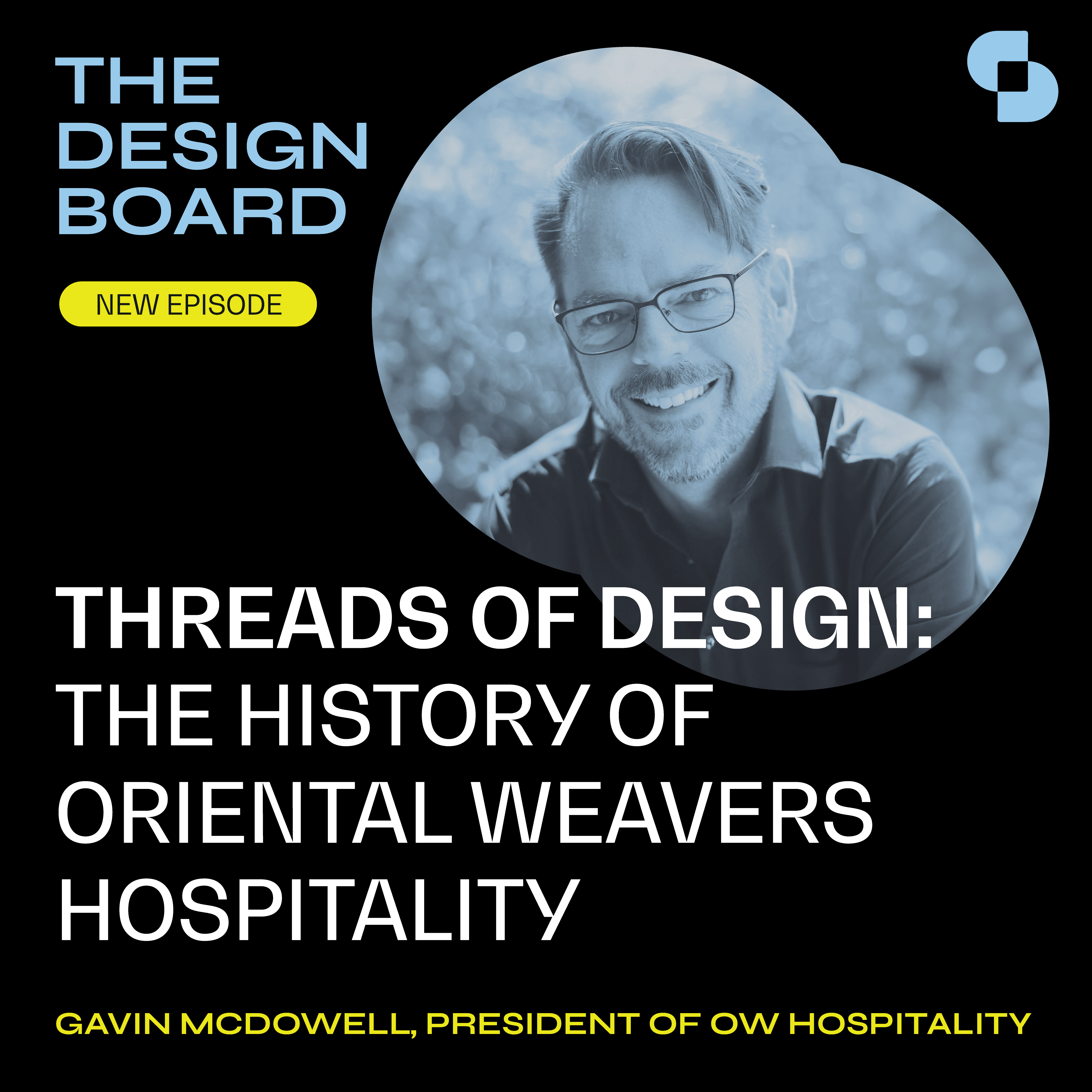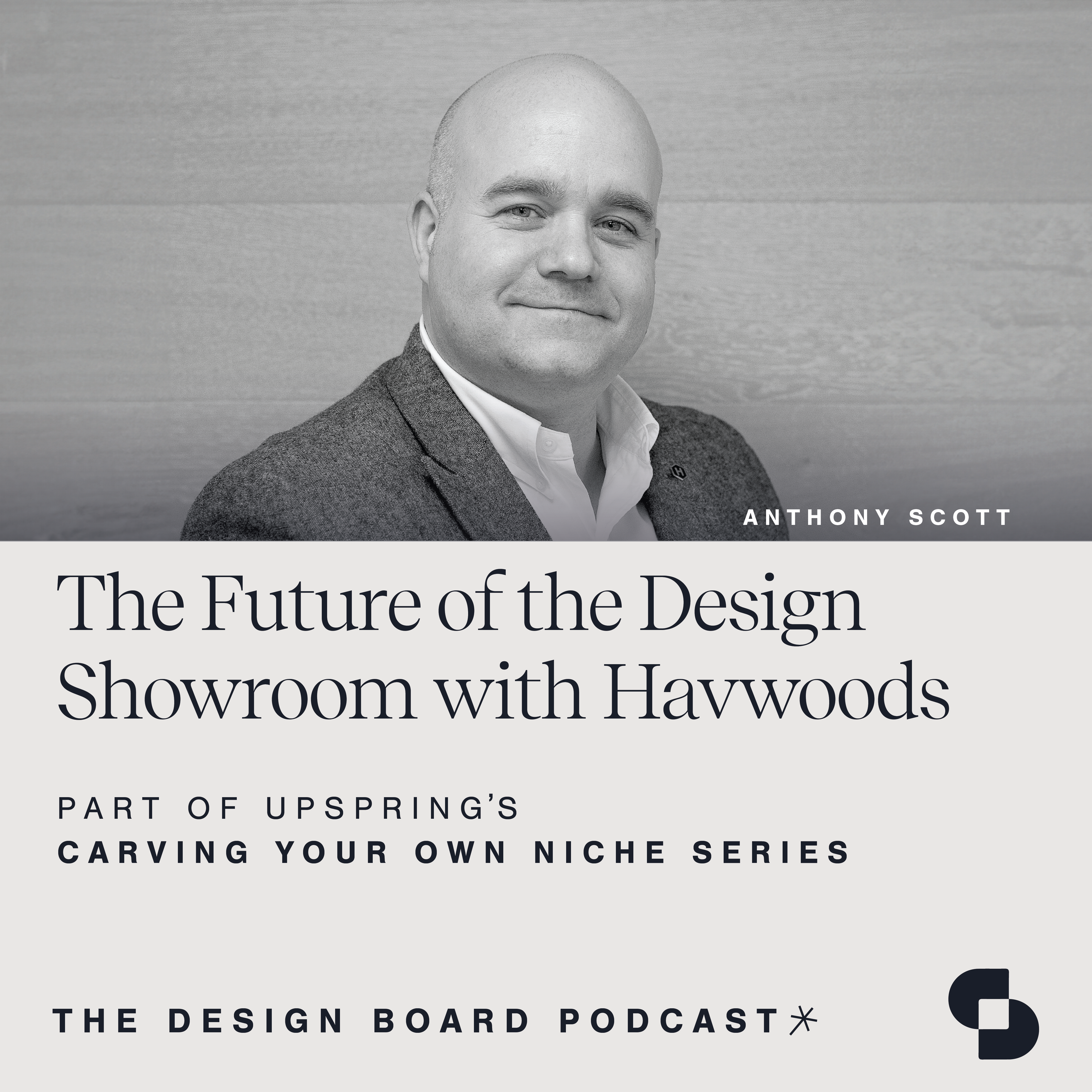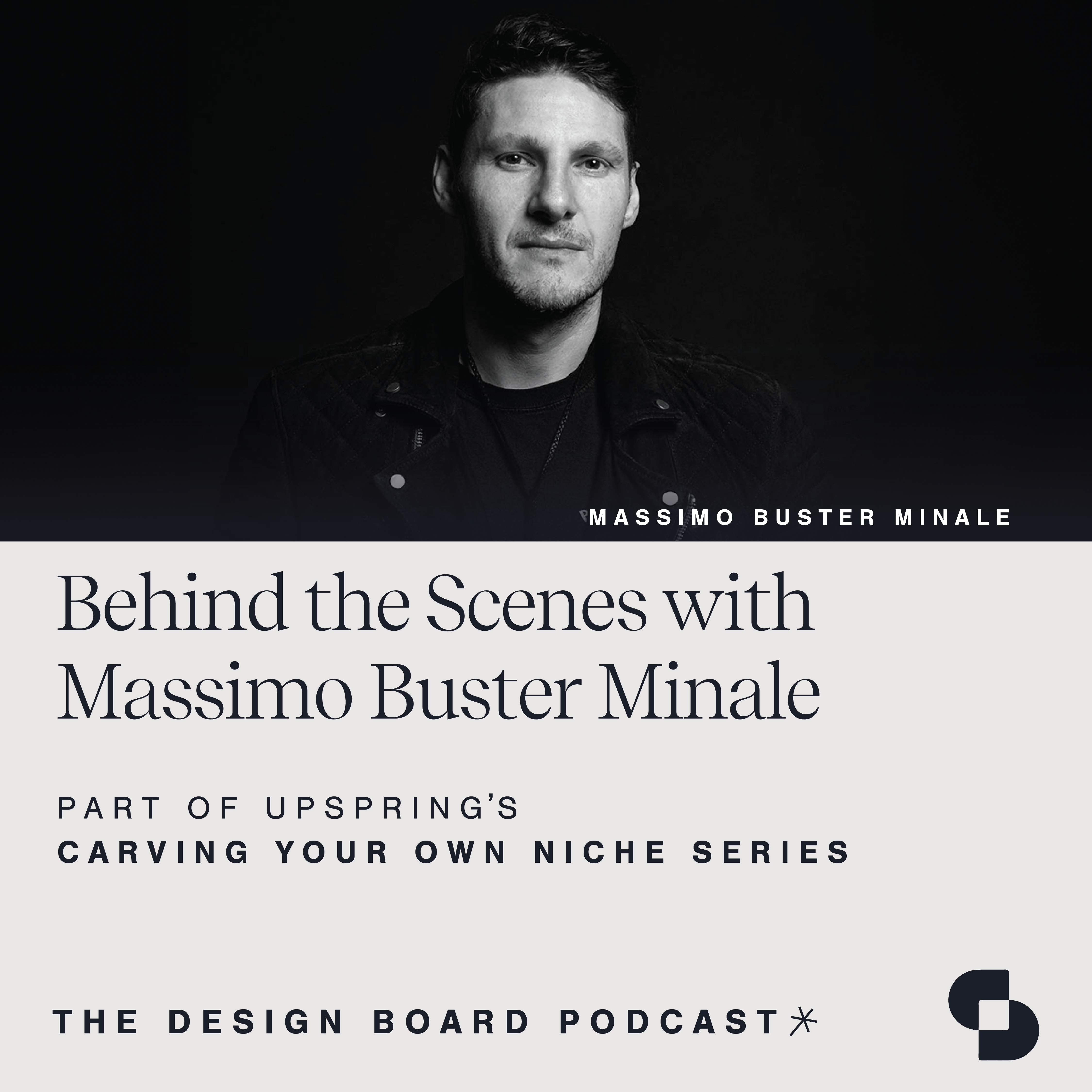Design enthusiasts won’t want to miss this episode! This discussion takes a deep dive into the unique partnership between Sunda and Studio K, uncovering the inspirations and challenges that have shaped their journey. Discover how the design elements have set each Sunda location apart from the rest and how the team conceptualizes their “muse” for each space, drawing influence from local elements that make each venue truly unique.
The Design Board, by UpSpring, is a proud member of SANDOW Design Group’s SURROUND Podcast Network, home to the architecture and design industry’s premier shows.
Tiffany Rafii:
Welcome to the Design Board, a podcast created by the team at UpSpring that focuses on design, development and everything in between. We invite innovators in our industry and explore topics that support your growth in every way. The Design Board is a proud member of Surround, a podcast network from SANDOW Design group featuring the architecture and design industry’s premier shows. Check it [email protected].
Welcome everyone to the Design board, a podcast by UpSpring that focuses on design, development and everything in between. We host innovators in our industry and explore topics that support your growth in every way. I’m your host, Tiffany Rafii, CEO, and Co-founder of UpSpring. And today I’m joined by Karen Herold, founder and principal at Design Firm Studio K and Billy Dec, owner of Sunda New Asian, a restaurant concept that celebrates the blend of cultures found throughout Southeast Asia. In this episode, we take a deep dive into the unique partnership between Sunda and Studio K, uncovering the inspirations and challenges that have shaped their journey.
But first, let me start with some introductions to our guests. Karen Herold, with a degree in fashion design and over two decades of interior design experience, Karen Herold’s approach to her work is intuitive and multidisciplinary, allowing her to impact direction on all aspects of the creative process. In 2014, Karen founded Studio K to develop a diverse team of imaginative and forward-thinking brand strategists, visionaries, aesthetic masters and technical designers to offer end-to-end design solutions for all projects. We have also with us today Billy Dec. Billy is a two-time Emmy award-winning entertainment TV personality, producer, actor, attorney, entrepreneur and creative. A leader in the premier hospitality and entertainment space for decades, creating marketing and operating award-winning restaurants, bars, and nightclubs.
Regularly featured on NBC’s Today show hosting and acting on TV and film, Billy is a Harvard Business School alum and served as a presidential appointee for five years, focusing on racial equity and bullying prevention issues. And supports several diverse community service boards and advisory groups.
All right, Billy and Karen, thank you so much for being here. We’re excited to dive in to really exploring a bit about your partnership and learning from the two of you. So ready to rock and roll. Can you guys dive into a bit of how Studio K and Sunda started working together?
Karen Herold:
Yeah, Billy, how about you take this?
Billy Dec:
So I stalked Karen for years. Finally, she got tired and she gave up.
Tiffany Rafii:
All good stories start that way, don’t they?
Billy Dec:
Yeah. All good stories start… I was thinking about this the other day. I knew of Karen and her amazing reputation throughout Chicago and was soon thereafter told about other things that she had done in other cities. But I think our first face-to-face, and I don’t know if this is what you remember, Karen, was at Sundance of all places.
Karen Herold:
Yeah, we saw each other at the film fest.
Billy Dec:
Yeah. And this is like seven, eight years ago. Which is crazy because here we are with these two openings together with only a couple months apart, and right smack dab in the middle is the film premiere of our documentary, which goes to the roots of Sunda. Which Karen was one of the first people I shared it with. And I generally just have good vibes about folks that I meet at really creative community engagements like a film fest. And I just thought it was cool that she sort of expanded her creativity and love for storytelling out into the film world as well, not just in design of hospitality entertainment.
And I think through that initial, she was more on my radar. And eventually when COVID sort of cleared a bit, we started pursuing these new Sunda’s to roll out. We just cut against the grain and went to expand. I was a little bit more direct and thorough with my pursuit of Karen, and we had a sit down and it was a really great connective moment where we sort of shared a lot of feelings about what was possible and the vision behind it all.
Tiffany Rafii:
Karen, how accurate was Billy?
Karen Herold:
Yeah, fairly accurate. And to make the circle even more full, I’m in Colorado now and I was in Colorado when Billy first called me and said if we could start exploring working together. So it’s really interesting how this is all coming full circle now. And what was for me, besides knowing of Billy and then running into him at film fest and all that, for me, what was the most important thing. Because I said to Billy, for me, every partnership really starts with the people behind the partnership.
And Billy and, I think, we kind of grew up together. And although we didn’t, it feels that way. He was the kid that I would get in trouble with at school and we were both probably being kicked out and we would play hooky together. So from the beginning we’ve had just a crazy amount of fun. In most of the meetings he and I are kind of in the corner laughing about something. The only reason why we’re not being kicked out of the classroom anymore is that now we own the companies, but otherwise we would’ve.
Tiffany Rafii:
I am caught from the same cloth, so absolutely. I can 100% appreciate the build your own classroom so you can’t get kicked out mentality. Talk to me a little bit about what drew both of you in your own way to the hospitality industry.
Karen Herold:
Well, for me it was a complete accident. I was a fashion designer. I came to the US in 98, kind of stuck around and started through a whole set of coincidences, started working on some places in Vegas. Which led to then me becoming a restaurant designer and I ended up liking it. So I’m still at it. So yeah, for me it was kind of a coincidence and it just kind of started 20 years ago and I never stopped.
Billy Dec:
I too was going to be something else when I grew up or whenever I grew up. I was in the restaurant industry quite early, literally in sixth grade I started coat checking and then I was a delivery kid. And then I did all the jobs you can imagine coming up in the world of restaurants and events to put myself through college and then law school. And I became a lawyer. And by the time I had gotten to law school, I started opening my own venues. I loved the creative collaboration between different artists and designing the place and creating events, putting people on stage, drawing the attention of the market and just filling the places.
And by the time I graduated law school, we had two nightclubs, 250 family members almost working in those nightclubs. And I had to make a choice, either be a lawyer or pursue hospitality entertainment. And for a number of reasons, I chose hospitality and entertainment, thankfully.
Tiffany Rafii:
That’s awesome. So I mean quite the ride. How did this experience and the evolution of this hospitality career lead you to Sunda? Talk to me a little bit about the concept and the venue itself.
Billy Dec:
Well, one of the reasons why I chose hospitality and entertainment over legal is when I had an advisor who sort of broke down my everything and we sort of explored what I liked, disliked, wanted, needed. And we realized that I loved to creatively solve problems quickly, and I loved to make people happy. And solving problems quickly and making people happy wasn’t what attorneys did necessarily. And it was definitely what happened in hospitality, especially in the restaurant industry.
I made a quick evolution into restaurants. They were just hip, highly designed, cool, fun places. But I never really took a deep dive into my own Southeast Asian culture. My mom was from the islands of the Philippines. I grew up with Filipino food and Tagalog spoken in the house 24/7. We were back and forth to the Philippines and the surrounding countries every other year or so my entire life. But when I was in America, in Chicago, I was always trying to fit in and being these highly cool, celebrated environments. And it wasn’t until 14 years ago now, that I really took the jump and wanted to make Asian food, Southeast Asian food, elevated and celebrated. And the way to do that was this movement called New Asian, taking these traditional favorites and elevating them with the quality of ingredients, the quality of presentation and design and service standards and everything you can imagine.
And really that has just led to a deeper and deeper celebration of not only the culture, but my past, my heritage, which is what the documentary food Roots is about. And what Karen was really great at, what I fell in love with immediately, was we’ve all built really cool places. She’s definitely built a tremendous amount, but what is meaningful at this point in our lives was like, well, her questions were about my family and about that journey that we just shared. And she was at my house and my mom is taking Calamansi, this fruit that’s indigenous to the Philippines off a little tree that she had sort of nursed, and making her a special drink in my home as we talked about cultural things that mattered.
And that to me was everything about Karen that I thought was super special. Because usually people want to come out and impress and do all this fabulous stuff, but she actually cared about what was most important. And that’s really my journey, to answer your question with Sunda, is really evolving the journey to hone in. I bought my partners out, I separated from other concepts to really focus on Sunda, rolling it out and then building new properties and seeing how far we can take this. How long Karen will keep me around.
Tiffany Rafii:
I mean, it sounds like she’ll keep you around, at least for the comic relief. Right? And entertainment. At a minimum. Let’s talk a little bit about the design. How does it differentiate between the various locations and how is that concept developed? Can you share a little bit there?
Karen Herold:
So it’s exactly what Billy said. So the way I work when it comes to restaurant design or pretty much all interiors we create, is maybe a little different than many other designers do it. Where for me, it’s all about empathy and about an emotional experience. And so my beginning is always trying to understand who the chef or the operator is, where he or she comes from, what drives them. So my dream is always to create a space that when it’s done, my client says, wow, how did you do exactly what I had in mind? That’s always my goal. Today that’s exactly it. And if they would have a design degree, then they would be able to do it just like that.
And so I always say the restaurants are not mine. They’re not my design, they just come through me. I just translate an operator or chef’s vision into an interior experience. And so in this case, what I noticed right away with Billy is his passion for his culture. And not just his own from the Philippines, but everything surrounding it. And when you eat at Sunda, everyone who has had the pleasure eating at Sunda, you can tell right away that it’s such a varied menu. And it’s everything and all the best of what he’s saying is truly celebrating the Asian cuisine. And so for me, it was really important to build the interiors to not get too tied in, oh, it has to be Filipino or it has to be Japanese or it has to be… It’s a mixture the way his food is. The interiors are a celebration of the Asian culture, very much seen through the eyes of Americans.
So we’re not trying to be someone, we’re not. We are in this case in Chicago or recently in Tampa. And so we’re taking the existing concept and we’re turning that into something that fits the current environment, the city we’re going in, the people that live in that specific area. And so we’re seeing everything through the lens of location. And with that we’re celebrating Asian cultures. So therefore each of them are completely different because each of our locations are completely different.
Tiffany Rafii:
No, that makes sense. Are there local elements that influence the design? Are there any specific things you’d like to share?
Karen Herold:
Oh, for sure. The one in Tampa is very tropical. There’s a little bit of a vintage vibe to that. It could be a vintage Filipino vibe, it could be vintage Hawaiian style. It’s super laid back. It has all very fresh colors. There’s amazing textures and wall covering and everything that reminds you of this fresh summer day, which is Tampa. And by the way, that town I underestimated until I came here with Billy. Now I want to move there. But we created this restaurant that really feels like you’re on vacation pretty much already. And so it’s just a super chill, outdoorsy summer vibe.
But then the next one was Fulton Market in Chicago. Very different, very different climate, very different clientele and pretty much in restaurant row. So we leaned in much more to the more industrial heritage that Fulton Market has. And we’re way more robust in our choices, darker in our finishes, stronger in the textures, use a lot of raw real materials. And all those things that I think guests have come to appreciate about Fulton Market and all the top restaurants that have opened there in the last 20 years.
Tiffany Rafii:
When you’re creating something new, and we all know this firsthand, you always face challenges, right? There are bumps in the road. I’d love to sort of hear from Billy from an operations development standpoint, creation standpoint. What are some challenges you ran up against creating Sunda? And Karen, you from a design perspective, it’d be awesome to have you share.
Billy Dec:
Yeah, I think the exciting part about this particular partnership and teamwork that I have with Karen and her whole crew is that thankfully, knock on wood, we really haven’t had much of the challenges. When we’re together, it’s a complete positive opportunity to collaborate and create together, and it’s something I look forward to all the time. I think having built places before, the real challenge has been sort of coming out of post COVID. We started all of these initiations, these projects in 21. And then 22 wasn’t that much better when it came to choices, lack of clarity and access to everything, labor, supplies, delays. It was just a challenging time in history to be building when a lot of the rules in the environmental aspects changed so quickly and abruptly, sometimes for the good and forever.
So I think those were the only challenges. The reason I’m able to sound somewhat calm in all of that is because it is an even playing field for most. I don’t think anyone’s going to look back on 22 or the year before or after and say that, wow, that was the easiest year for me to build. So I think the cool thing was that Karen and her team were incredibly resourceful and I just come from that same gritty, make it happen background.
And so from a design and creation standpoint, that was easier than execution. And nobody wants bumps in the road anywhere, but if I had to choose, I’d rather make sure that my creation connectivity is super tight and strong and growing and evolving. And then if I’m on the same playing field with executional challenges because of environmental or market challenges, that’s a little easier to swallow.
Tiffany Rafii:
Karen, would you like to jump in with any design challenges you faced?
Karen Herold:
I think challenging in restaurant design is always to figure out how we get what we want for the money that we have and the time that we have. Those three things are not necessarily friends. For me, we’ve been very lucky that when these challenges come up, just random basic stuff, like we want a specific chair, but that chair tends to not be in stock anymore. And so we need to pivot. This stuff comes up all the time.
The thing is we have such a strong kind of group and it’s not just Billy, but also the team behind him that supports him and is there on a day-to-day to make it happen. And I am lucky enough to have the same that we could pivot very quickly. And so I think if you work with a team, and obviously the designers and the clients are part of the team, but also the other consultants on the team, that if everyone understands the big picture and what the end goal is, instead of getting stuck on a specific chair or a specific fabric or a specific detail even. I think if you’re long enough in the business you know that it takes a village and it takes a thousand different decisions. And if one or two don’t go exactly your way, it’s all just fine because most of our guests will never know and will still be hopefully blown away by what Billy and I created.
And I truly believe is that the energy that you have as a team, you leave that behind in the space and your guests will feel that. It’s tangible. And so with that, and I think Tampa was already the proof of that, you can just feel the joy in that. And I’m convinced that when we open Chicago that it’s going to be the same. And it’s not exactly maybe how the 3-D renderings were, and there were little tweaks along the way, and some of them are for the better and some we maybe have to swallow some of our initial ideas about it. But yes, there’s always challenging in producing interior spaces. But I think when it comes to this specific relationship, the challenges are very minor because we’re just roll with it. And there’s so many more to build. So this is by far not the last one we’ve done, and so we kind of just keep building what we started two years ago.
Billy Dec:
I like what Karen said about leaving something behind. I flew into Tampa as a surprise a couple of weeks ago on a random Wednesday night. And I was freaked out when I walked in because I thought someone had taken the place over and thrown a gigantic party. It was like 10 o’clock on a school night, you’d imagine it would be slowing down, and people were just loud, rambunctious, having a ball. Just loud talking with smiles and clinking glasses and having just these amazing experiences. And it’s just been that way since we’ve opened.
And when Karen just said that, yes, we actually had a ball just working together on that and making these choices. Our last, we were up in the ceiling hanging, I don’t know, 1200, mostly Karen did it and her team. But I got out there and sort of wanted be part of the team too, with hanging these 1200 handmade inspirations from this flower, national flower the islands of the Philippines that she wanted to showcase. And it was like these beautiful pieces, but as a whole, it’s this amazing installation over this island bar and this vintage Polynesian getaway.
And the whole wall opens, nano walls, that opens up to a green space across the street. So it’s really the sun and fun and the whole deal. And I to this day, cannot walk in that space without seeing our heads in those clouds laughing hysterically, trying a video that I literally could never post because it is too absurd. You cannot understand what we’re saying. It’s probably not right for the public.
Tiffany Rafii:
Oh, my.
Billy Dec:
And we just think it’s hilarious and we understand each other completely in our eyes and are laughing.
Karen Herold:
Billy, that’s such a good thing that you bring that up because bringing up that sculpture, and that’s one of my passions, creating sculptures for many of our interior spaces. And what is so important, I think, as a base for our relationship, and I wish many other operators would understand that, you from the beginning have approached me as an artist that happens to work with interior spaces. And so we meet each other as artists. And you are in your way and what you’re doing with all your documentary work and all you do with the food and your approach to your culture. And I do that in my way with the spaces. And that’s where we meet as artists.
And meanwhile, we’re creating things, which is such a different basis than how I think many operators who hire interior design firms see them or treat them. And many times they become a go-to surface company, like do this, create that, make that and do such. And I think a lot of times that becomes a self-fulfilling prophecy. So if you’re meeting me as an artist, I will be that artist and I will do everything within my power to create your vision. Which is very different than if you’re treated as in you need to do this because I want you to put this sort of wood on the floor or do this. So I think that how it started and recognizing each other as the artists that we are has a lot to do with how easy it is to create spaces together.
Tiffany Rafii:
Gosh, I’ve been doing this for what I think is a long time, but who knows, sleepy. And I’ve heard so many designers and creators talk about the details and the components and the items. And it is so refreshing to hear the approach to creating an experience in a way that isn’t generic. And that really you are looking to evoke emotion and that you are really leaving that energy behind and creating a place that people really feel that. And I 100% believe that. I think it’s really incredible how you all have sort of worked together to actually bring that to life.
Looking back on the journey of Sunda and Studio K so far, right, because lots more to do, what are you two most proud of achieving? Are there any particular milestones or moments aside from heads in the clouds that you can highlight for us?
Billy Dec:
Well, I mean, first of all, I joke about our babies. Sunda Tampa baby is like a happy baby that’s growing quite quickly and really celebrated by the folks around. And what more could you ask for? But my answer to that would be I’m most proud of our relationship and the ability to completely be excited to do more. That’s not easy these days. And don’t get me wrong, we made it sound like we were able to get through our challenges quite quickly and maybe one might assume that they were manageable and easy. They were by no means easy. I think we’ve both had rough roads and have been around the block and have seen the world and have done the work. And have sort of gotten to this point where we are able to figure out solutions quite quickly. But I think I’m most proud that we’re right in the same page.
I don’t get to see her all the time, but I feel like I do. And when I do, I don’t even know if we say hello, we just get right into it. Do you know what I mean? And we’re whatever that is, it could be on a construction site with an espresso or a glass tequila or whatever. I mean, we’re working and we’re creating. And I think that’s the most important. If you can come from different sides of the world and have a common respect for a particular vision, that’s just cool. It’s a really cool situation. I hope it just keeps growing as fast as it is.
Tiffany Rafii:
I love it.
Karen Herold:
Yeah, I would add to that then I think both of us are at a point in our career and a very similar age. We have very similar backgrounds in the sense, not the culture where we’re from, but the choices we’ve made and things that we feel are important for our career. And it’s so great. And I guess what I’m most proud of, that I am now at a point where I can make choices of who I work with and not for, which is a very big distinction. Who you’re working with instead of who you’re working for.
And so Billy and I work with each other, and that is such an amazing, rewarding thing that it truly doesn’t feel like work. All the rest of the stuff to make it come to life and to make it actually open at the right time or soon there after, and for the budget that hopefully we can afford, that’s all the hard work. And that’s with a lot of other people. But when it comes to all the new endeavors we’re already talking about, there’s so much inspiration, I feel that we can build 50 restaurants together and all of them will be different because there will just be an expression of whatever the location is and the journey that Billy and I are on together and what that brings over time. So yeah, I think I just feel super grateful that I’m at that point in my career where I can have collaborators like Billy to express myself through.
Tiffany Rafii:
Well, I have to give it a try to try and pull out some top secret information if I can. So we’ll see how far I can get with the two of you. But we have heard some chirping that there’s a new Sunda location coming. Are there any details you all are willing to share?
Karen Herold:
Well, my lips are sealed, otherwise I’d be fine.
Billy Dec:
Yeah, I mean obviously in the next month or two, the meat packing district in Chicago, Fulton Market is opening. And I think this also goes to your last question about excitement, pride, inspiration. One of the things that we’re also doing is we’re going to markets where they don’t really have the level of passion in particular areas like Southeast Asian food, for instance. This new Asian elevation of these traditional favorites. That’s why we went to Nashville, that’s why we went to Tampa.
So a lot of the other markets we’re looking for are these booming markets or these markets that are having this incredible moment where they’re transforming and bringing not only this new Asian level of Southeast Asian experiential culinary culture, but also the design. We didn’t play it safe in Tampa. I think we raised the bar and the bar was already getting raised quickly. And I think we raised the bar intentionally and invested intentionally. And I mean that both monetarily and also in Karen’s time and efforts.
So a lot of the places we’re going to are secondary cities that are booming. There have been some on the table that could be even in Florida now that Tampa’s such a great successful anchor. There’s cities like Orlando that I never would’ve thought I would ever think about. I just never would consider. But it’s just having its transformational moment. Detroit is another one that is just having an incredible evolution quick. That people, if they haven’t heard about it, are going to start hearing about it very quickly in the next few years.
Cities like that. I mean to us it’s about how do we bring things that make us really passionate that we’re really great at. And I mean this for both me and I’m now speaking for Karen. But to new markets where they don’t have that, where they haven’t had an opportunity to really feel the emotional response in the room through the experience. Because they haven’t had those level of textures and designs and storytelling in the room and on the plate or in their glass or from the interactions with the staff.
So that’s a long way to say we could have went to New York, LA, Miami, Vegas a while ago, but for me it’s always been, I don’t know if Karen feels the same, but I’ve always really wanted to take new Asian and our culture to the mainstream where it isn’t accurately depicted or at all. Where it has no voice. That’s where I think you’ll see us next. And I guess you’ll have to have us back of the show to talk about the next [inaudible 00:28:27]
Tiffany Rafii:
Yeah, sounds good. We would love it. All right. Any advice you two have for anyone who might be going, either looking for a partner to create with or any advice to share for anybody? Billy, from your perspective, who’s headed into the restaurant business. Karen, from your perspective, how to qualify clients. Any little bit of advice that either of you would like to share?
Karen Herold:
Yeah, I’ll take it from a design point. My advice to any designer, especially when it comes interiors, is to make sure that you actually listen to your clients and be of service to them. I think a lot of designers nowadays push their agenda a lot or whatever their taste is or they have in mind to create. Which I feel doesn’t do a service to, of course a client, but also just to the industry as a whole. There’s plenty of beautiful designed restaurant that never made it because it was over-designed. So design is definitely not necessarily the answer. So just starting with listening instead of doing is always my advice.
Billy Dec:
I feel the same way. And as a restaurateur or any entrepreneur that not only would you apply that to let’s say a designer, but I think you have to use that as an example of putting people that are smarter and better around you. I think you have to, one, put yourself in every position in the business first at some point in some capacity. But then eventually, no matter how good you are, how good you think you are at anyone one or two things, you can’t be good at everything. You have to put really smart people around you and empower them, which I think Karen talked about a little bit.
And I think in order to do that, one of the things that I always talk about that saved my life from having nothing and trying to start from scratch was to relationship… I mean, in addition to working like crazy, but relationship building and building a tremendous amount of relationships constantly and consistently so that you have this network to be able to find people. Like, we had a friend in common which is why I was able to meet Karen when I did. We were able to solve a lot of problems between the two of us because we had a lot of relationships over the years. It’s building those relationships and that network help you navigate as an entrepreneur and then allow you the opportunity to find the right people to put around yo., and then sort of progress by empowering them and collaborating.
Tiffany Rafii:
Awesome. This has been so much fun. Thank you so much for joining me and for being willing to get under the hood on your partnership and how you all make it work. You make it look easy, I’m not going to lie. But we’ll be following along. So thank you again.
Billy Dec:
Thank you.
Karen Herold:
Thank you. Bye.
Tiffany Rafii:
Thank you so much for listening in with us today. We hope you leave inspired by the ideas in today’s episode. For more, follow UpSpring on LinkedIn and Instagram, and don’t forget to check out the amazing lineup of shows brought to you by the SURROUND Podcast Network at surroundpodcast.com.

